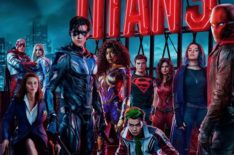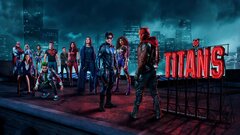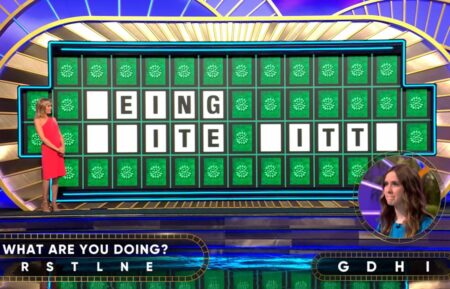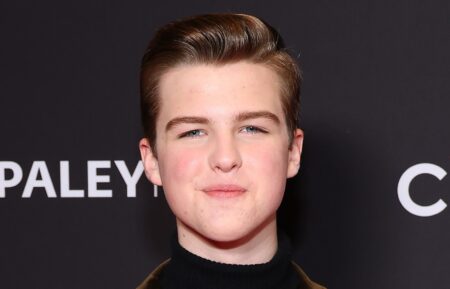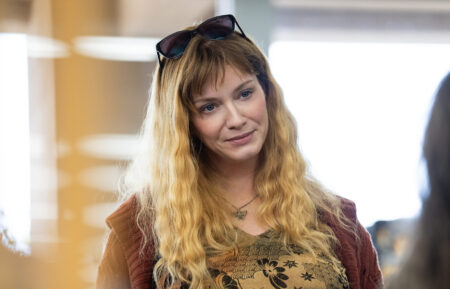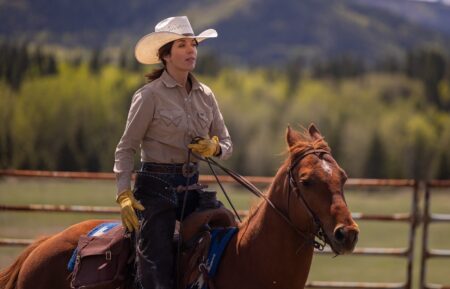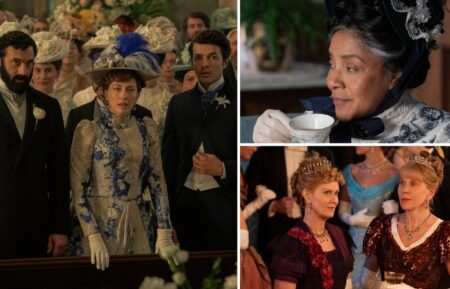Brenton Thwaites Explains How Nightwing & the ‘Titans’ Can Take on Red Hood
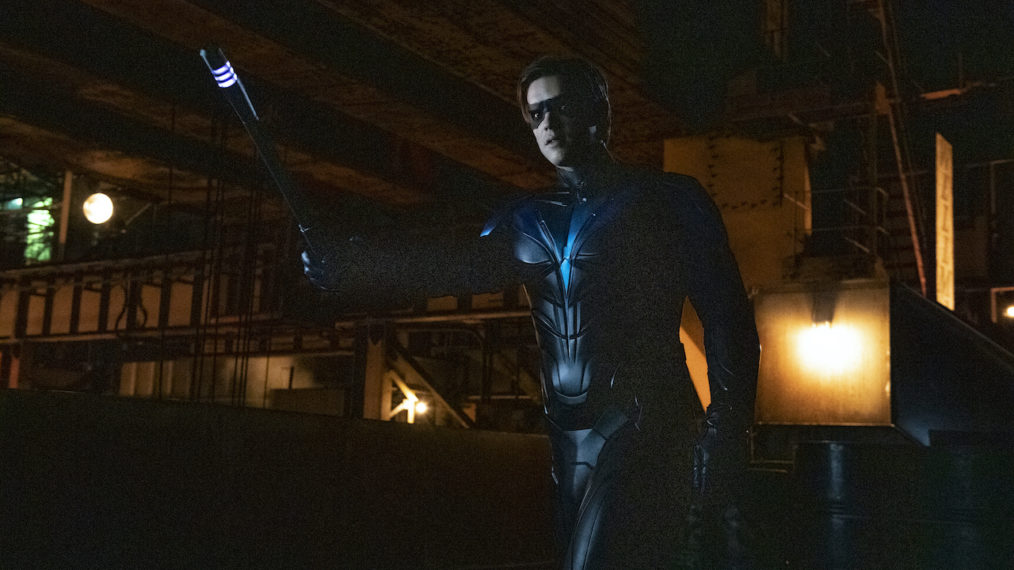
Spoiler Alert
[WARNING: The following contains MAJOR spoilers for Titans Season 3 Episodes 1-3. If you’re still behind, maybe look inward and resolve whatever issues are keeping you from catching up on this fantastic DC Comics drama.]
They say you can never go home again, and in most cases, you probably shouldn’t. But when that home is Gotham City, we’ll allow it. Especially since that is where Titans has moved the action to for its just-launched third season. As fans who have seen the first three episodes know, Dick Grayson (Brenton Thwaites) and company have traded their San Francisco headquarters for Wayne Manor following what they thought was the murder of former teammate Jason Todd (Curran Walters) by The Joker.
At the end of the second hour, it was revealed that Todd was both very much alive and also very bad…like murderously so. As the iconic villain Red Hood, the not-so-fallen Todd gave Dick’s Nightwing a firsthand lesson in just how dangerous the boy who became Batman’s Boy Wonder after him has gotten during a climactic showdown. And it’s that battle, according to Thwaites, which sets the stage for a season of conflict—emotional and physical—for Dick and the team. Here, the actor opens up about what else is to come.
This is such a big season and I love that Dick is finally ready to be a leader.
Brenton Thwaites: Yes. He’s kind of put aside his immaturities and youthful behavior and he’s learned from the past. He’s been asked to be the leader that he knows he can be and in Season 3, we see him at least attempt to step up into that role. But he does have faults and there are leadership issues there, but ultimately, he does step up and try to lead the Titans towards a better place.
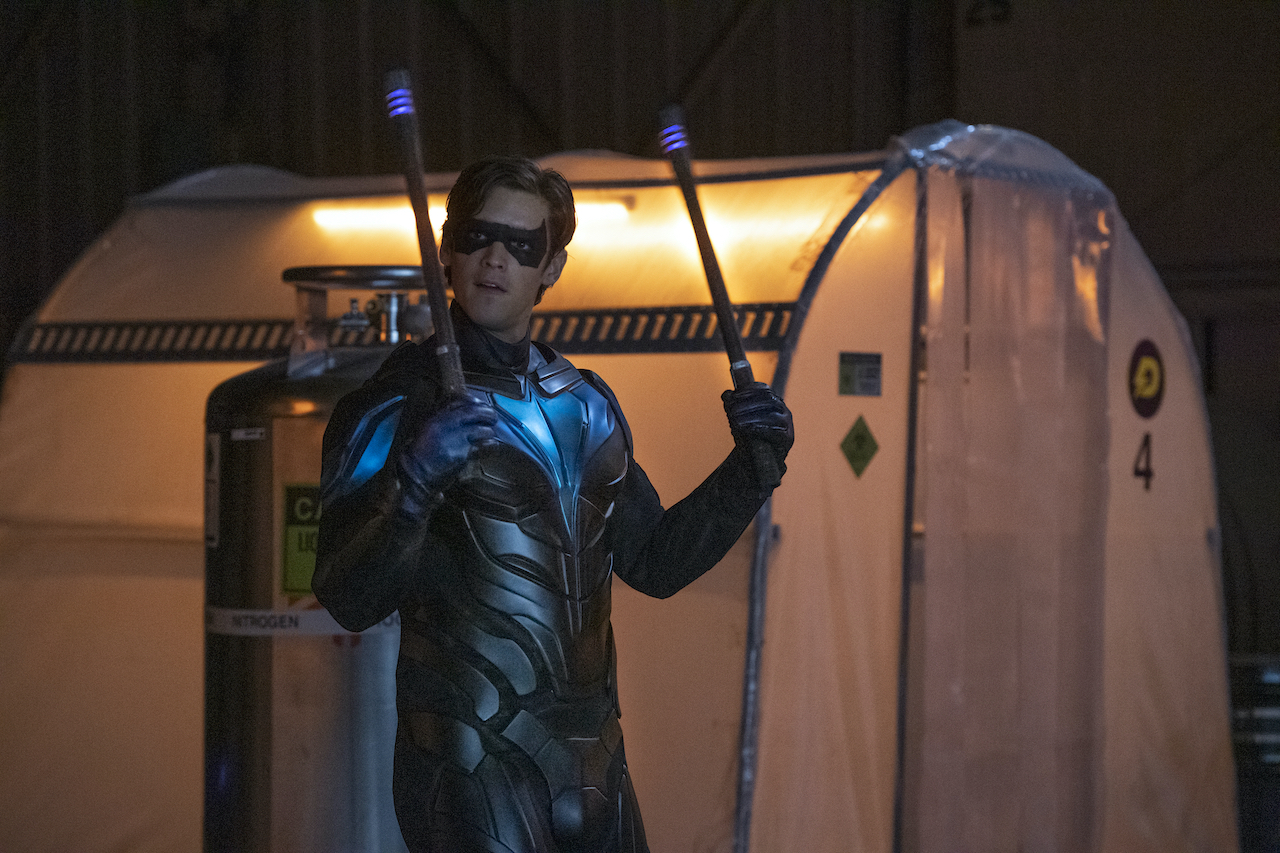
And he clearly loves being Nightwing, now. Even now that he’s back in Gotham.
Yeah. I think we’ve all waited to see this Nightwing, and it’s kind of written in the story that Dick has been developing this character for a while and has finally kind of stepped into his shoes. But that return to Gotham, you’re right, there is a lot of angst into returning to this place. This place that birthed a lot of his fears and failures and anxieties, and all that. But it was important to also show the love that he has for Gotham and what going home means to him. It was important to feel like he wasn’t going home the same person.
And I also like that he has these connections in Gotham. He knows the people there, he knows the city…
The best coffee, the best hamburgers. How to get around. Cheap train tickets. He knows, man. [Laughs]
Now let’s talk about the Red Hood stuff because you and Curran have worked together for so long. And this is really one of the few shows where the heroes fight each other all the time. What did that bring to the fight sequence for you guys?
Yeah. Well it’s kind of a development from—I don’t know if you remember—Season 1 when we had a scene in the elevator at Bruce Wayne’s private safe house.
Oh god, yeah. The Batmobile scene.
Yes! He’s just annoying me and asking these stupid questions, and Dick is frustrated that he has to kind of babysit this new Robin…let alone maybe be a little bit jealous that Bruce was giving him access to the Batmobile. Bruce showed him a little bit more love than he gave to Dick, right? That storyline and conflict kind of ramped up through Season 2 and it only gets more heated and more tense through Season 3. So the stakes are way higher, the fights are way more brutal. But it’s that brotherly kind of [energy]. No one fights like brothers, right? So it’s that kind of intensity that we’ve kept throughout Season 3 and it doesn’t really matter what side of the coin we’re on, good or bad. We still maintain that level of brotherly brutality and kind of subtle annoyances to the fights. There’s still that connective tissue there.
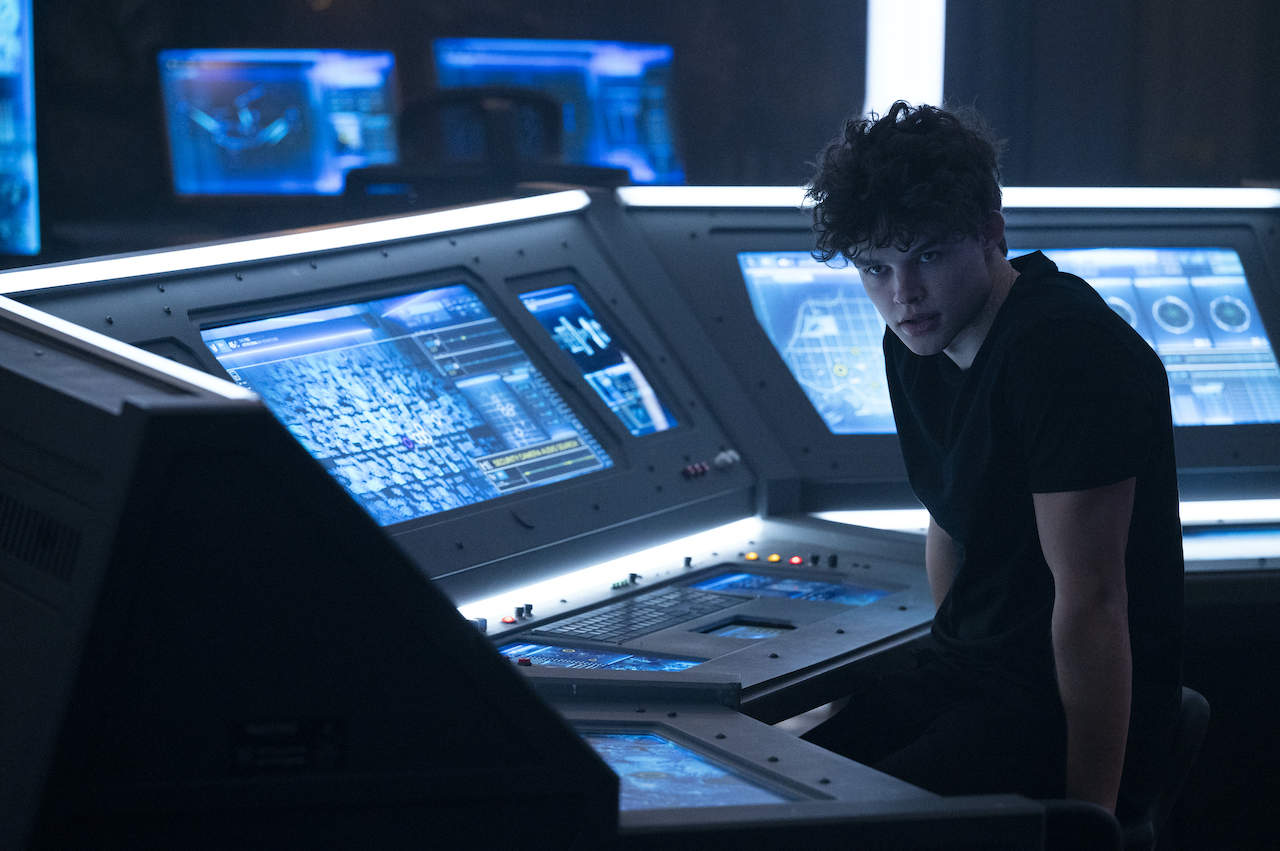
Do they pull their punches because they don’t want to kill each other?
Totally. That’s what I mean. There’s a level of hesitancy and reluctance, especially from Dick in the earlier episodes where he has an opportunity and decides to maybe pull back, there is a momentary reluctance a few times.
And how was it filming that first fight sequence with Curran?
That part was interesting because we shot it quite late [in the season]. Because of COVID, we were shooting all over the place. But the important thing with that fight was that Dick not only maintained his, I guess, professionalism…that aggressiveness and desire to get this villain, in order to have a maximum impact for when Jason takes off his mask and reveals who it is. That change really needed to shape the entirety of the season. So it was a very dynamic fight. I mean, one of my favorites.
As a viewer, we knew it was Jason in the mask, but Dick doesn’t, so there was a part where it was like, “Oh my God, he’s beating the hell out of this kid that three months ago was his boy!”
Right, right. It’s like playing tennis. You’ve got to figure out what’s their weakness. And so, in the beginning, he’s playing tennis with a “new guy, [who’s] got guns and got moves. So who is this kid? And then all of a sudden he realizes who it is but it’s not the same tennis player he’s been playing all these years…Jason has developed into a completely new villain with new skills and weapons.
What does that do for Dick going forward as far as trying to stop him versus trying to save him?
Well, it’s unlike Deathstroke (Esai Morales) in Season 2, where we really were just trying to stop him and couldn’t. We had to basically get together as a team and use our physical skills in alliance in order to stop the powerful Deathstroke. In this one, it’s a little different, because the villain is a little closer to home. We have love, we have compassion, empathy for this character, and that kind of gets in the way of just initially thwarting him and killing him, I guess.
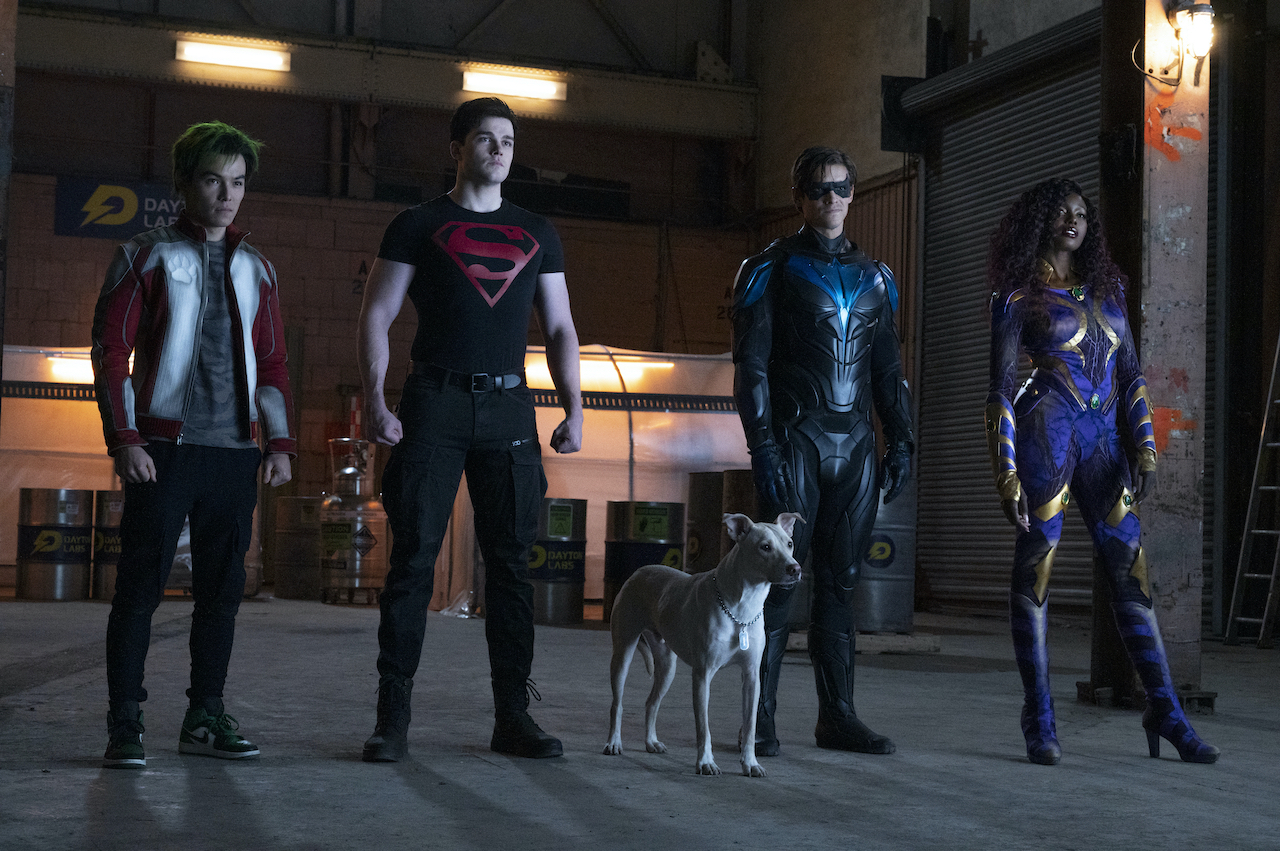
Who on the team is the one that’s like, we can’t kill him?
Gar (Ryan Potter). Gar is a character that, surprisingly, is very compassionate and empathetic. And his love for Jason carries throughout the season, despite Jason’s actions. He’s the character that kind of says, “OK, hold on guys. This guy that’s going around doing all these things may be influenced by someone else. He may be on drugs. Something may be happening to the person that we love. So let’s try and remember that there is a guy in there that we fought alongside, that we love…that was a Titan.” And so he kind of encourages us to think outside the box and [see] the bigger picture.
We pretty much know Donna Tory (Conor Leslie) will be coming back from the dead. How will that impact Dick? Because there’s clearly something going on with him and Barbara…
Yeah. I mean, Donna Troy was always more of a brotherly-sister relationship there. She was someone who had grown up with Dick from quite a young age, his early teens. And so we grew up together, I guess, fighting crime from an early age and also being exposed to such traumatic events. The violence, abuse, and all that kind of stuff. There’s a level of compassion that she has for me, a care and worry that represents more of an older sister relationship. So when she comes back in, she is the ultimate psychic. She is only there to help and to encourage. But that’s a whole separate storyline that I can’t wrap my head around, to be honest. [Laughs]
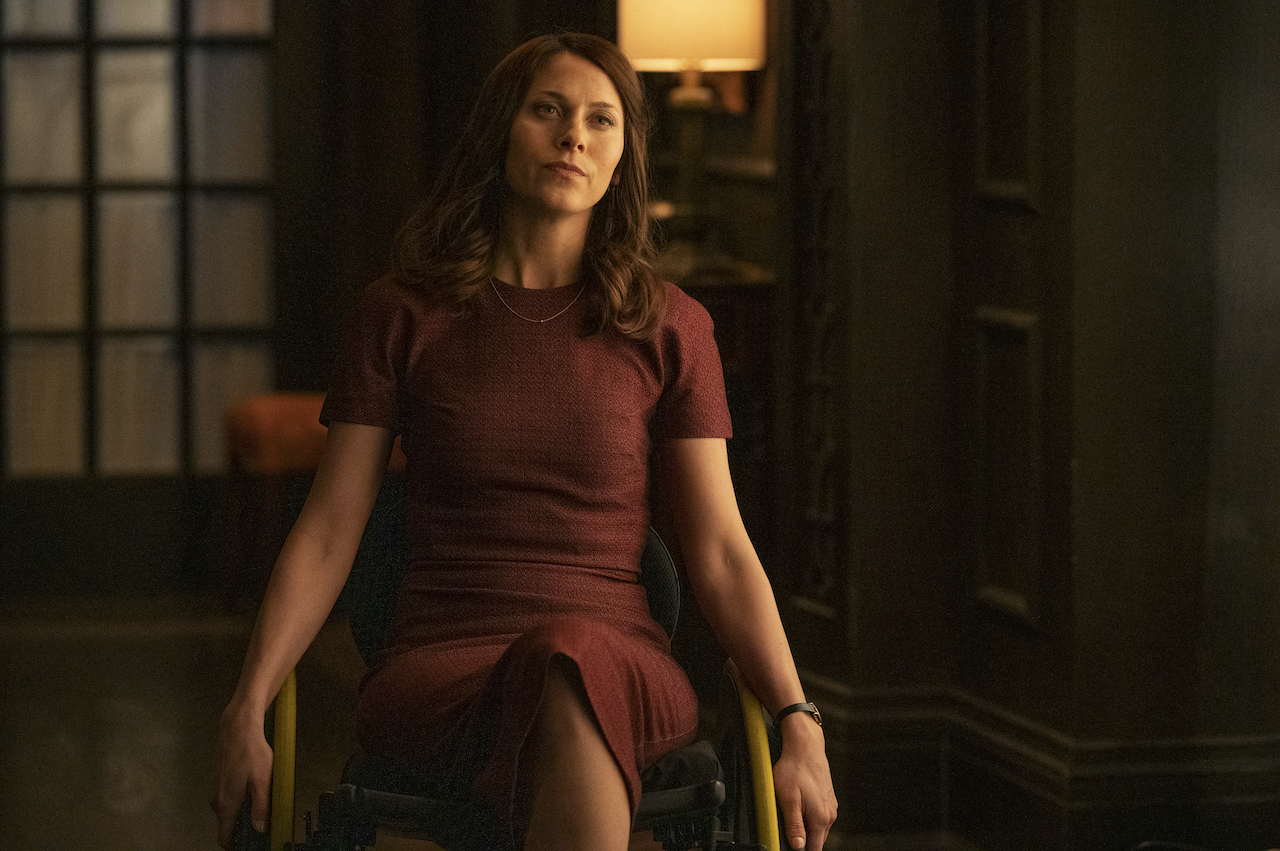
And what is up with Dick and Barbara Gordon?
Dick is returning to Gotham knowing that he has to face Barbara Gordon. She’s an ex of his, a romantic ex-partner of his, and since he was in Gotham last, she’s been injured and has been in a wheelchair. So it’s a new thing for him. There’s a lot of pain there on both sides. And honestly, there’s a lot of explaining for Dick to do. Barbara understands that Dick had to leave Gotham when he was younger. He had to get away and do his own thing. Dick’s returning to Gotham a very different person, as we were talking about, and throughout the season, we see them slowly start to trust each other again.
How do you feel about the team leaving San Francisco and having Gotham as the show’s backdrop now?
It was amazing. Toronto just lends itself to Gotham perfectly. The winter in Toronto is Gotham. And during COVID it really was Gotham. You’d drive down the street and there’s no one anywhere. The winter in Toronto, especially Hamilton, which is 45 minutes outside of Toronto and where we shoot a lot, it just looked perfect. That, mixed with the design and the kind of forward-thinking from [director-producer] Carol Banker and showrunner Greg Walker—they really put a lot of money and energy into creating this world that is not safe. The police aren’t protecting people. It’s too dangerous for people to go outside. It was, in a way, designed to somewhat mirror what has been happening in some parts of the world in the last two or three years. Those similarities really make it feel like an unsafe, uncomfortable place. And so even for the Titans, it’s scary.
Well, Dick even warns them, Gotham is a different kind of villain.
[Laughs] Yeah. San Francisco, man, we could all go for a surf under the bridge and hang out or whatever. But Gotham…you don’t do that in Gotham!
Do you and the cast realize how much the fans love this show?
Really? I didn’t know that. That’s great, man. That’s really good to hear. I think right from the get-go, it was a good idea, to take an idea that wasn’t exactly mirroring the comic books. You know, Geoff Johns and Akiva Goldsman didn’t really want to make Teen Titans. They wanted to put an edge on it and kind of cut into the emotional lives and the reality, the high-stakes intensity of what it would really be like to be a superhero trying to fight crime in Gotham. So we’re always trying to shoot for that believability. And I think, maybe that’s what does it. I don’t know.
And now we’ve got Nightwing and he’s awesome.
That’s great, man. I’m very happy you think that.
Titans, Season 3, Thursdays, HBO Max

